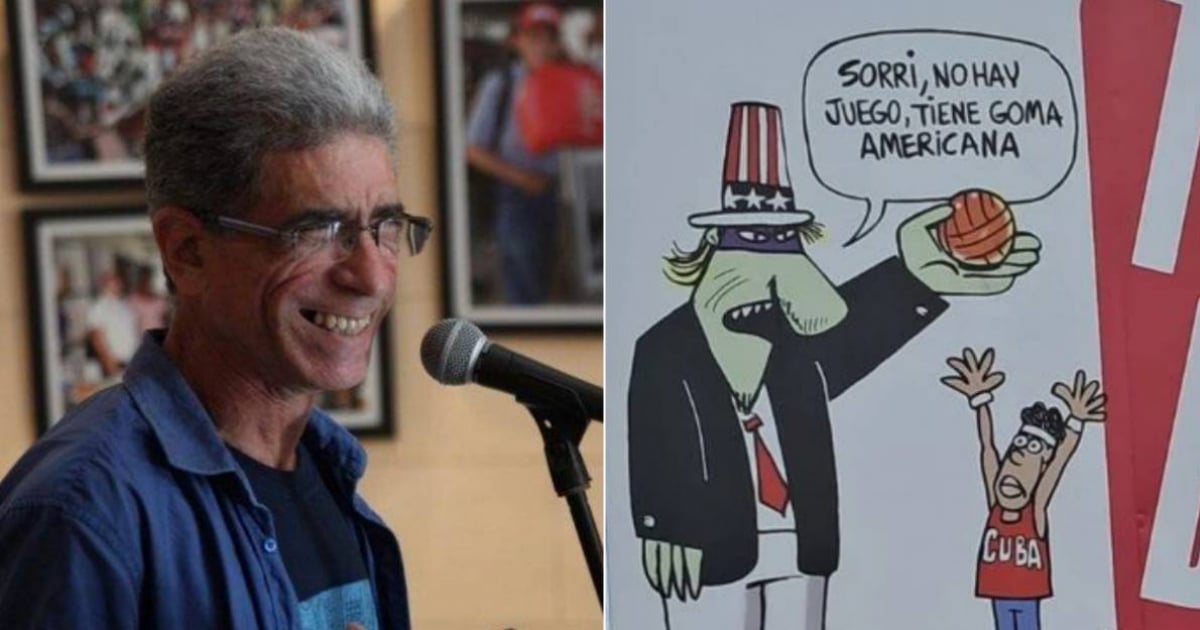A propaganda billboard in Holguín, misspelled as “Sorri” instead of “Sorry,” has not only sparked laughter among hundreds of Cubans on social media but also ignited an unexpected clash among communists, highlighting the regime's political communication crisis. The incident began with a Facebook post by Ernesto Almaguer Díaz, featuring the billboard located at the intersection of the Central Highway and Los Álamos Avenue. The sign, intended to convey a political message in "English," inadvertently triggered discussions about language and the declining state of Cuba's education system.
“If you're going to make a communist sign in another language, at least get the spelling right. It's 'Sorry,' not 'Sorri'... See how free education can backfire?” Almaguer commented. His post was shared numerous times, leading to a wave of reactions. Initially, it seemed like another episode of public mockery, but the debate intensified when Francisco Rodríguez Cruz, the Vice President of the Cuban Journalists Union (UPEC), chimed in on social media with a mocking and condescending tone.
“They fell for our trap and replicated our billboard in their rag! How stupid they are! Thank you; we got you, 'sorri'...,” Rodríguez posted on Facebook, referencing a CiberCuba article about the social media debate surrounding the propaganda sign.
Rodríguez's comment amused his followers, with some even noting that "sorri" is recognized in the Dictionary of Americanisms as a word used to apologize, suggesting that the billboard's spelling was not incorrect. However, amid the supportive comments, a harsh critique emerged from within his own ranks, likely catching the UPEC Vice President off guard.
Raúl Hernández Lima, a journalist from Jit and the press officer for the Cuban Football Association, didn't hesitate to expose the deep contradictions in the government's communication strategy. He posted the following comment on the UPEC official's post:
“I thought the propaganda department invested heavily in delivering a clear, persuasive, and memorable political message that influences public opinion, promotes our ideology, and denounces the U.S. siege on our people. I believed these billboards aimed to mobilize emotions and appeal to sentiments to generate support for our position and our determination to resist the blockade. I was naive enough to think those funds were allocated to influence the perception and behavior of our people through effective visual communication. But I see I was wrong; it appears we're now playing hide and seek with a bland page that promotes the opposite and mocks us for being foolish.
And the Vice President laughs as if he had won a battle. If this is how things are in the upper echelons of communication, we might as well merge with the Humor Promotion Center. In the end, we have the enemy dead with our communication, but from laughter...”
The closing remark, “We've got the enemy dead, but from laughter,” encapsulates the failure of the government's communication strategies. The propaganda intended to persuade ends up causing confusion and hilarity, even among the ideological bloc supposedly supporting it.
This incident ties into recent statements by Miguel Díaz-Canel, who acknowledged that the island's government was slow to adopt social media and now faces the challenge of enhancing its political communication in an environment it neither informs nor technologically controls. Nevertheless, Díaz-Canel claims that institutions are gearing up to "triumph" in digital spaces, relying on the supposed strength of "the formation that Cuban revolutionaries present on social media possess.”
Episodes like the Holguín billboard reveal not only that Cuban institutions lack mastery over the language of social media but also that the government has lost its communicative power with billboards, lacking a solid narrative. Its messages are repetitive, dull, and fail to connect emotionally with the populace.
Even more concerning is the lack of consensus among regime supporters on how to communicate developments in Cuba. "Sorri," but what matters to Cubans today is reported by independent media.
Understanding Cuba's Communication Challenges
Why did the "Sorri" billboard cause such a stir?
The misspelling on the billboard sparked ridicule among Cubans and highlighted the broader issues of communication inefficiency and educational decline under the regime.
How did government officials react to the "Sorri" incident?
Government officials, including Francisco Rodríguez Cruz, responded with mockery, further exposing the internal contradictions and ineffectiveness of their communication strategies.
What does this incident reveal about the Cuban government's communication strategies?
The incident underscores the lack of a coherent and effective communication strategy, as well as the failure to adapt to modern digital platforms and effectively reach the public.
